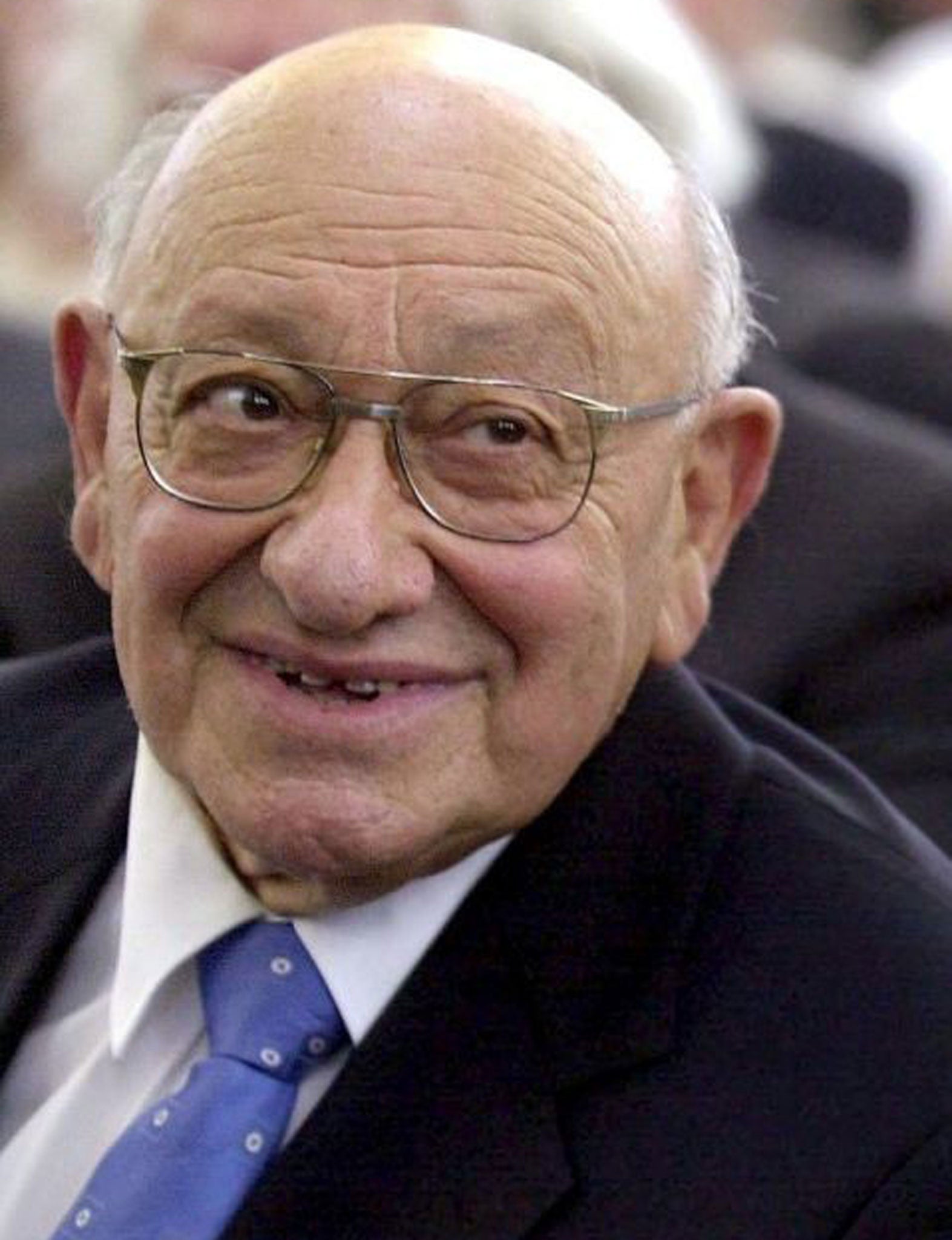Marcel Reich-Ranicki: Widely admired literary critic
His verdict on writers stemmed from wide experience

Your support helps us to tell the story
From reproductive rights to climate change to Big Tech, The Independent is on the ground when the story is developing. Whether it's investigating the financials of Elon Musk's pro-Trump PAC or producing our latest documentary, 'The A Word', which shines a light on the American women fighting for reproductive rights, we know how important it is to parse out the facts from the messaging.
At such a critical moment in US history, we need reporters on the ground. Your donation allows us to keep sending journalists to speak to both sides of the story.
The Independent is trusted by Americans across the entire political spectrum. And unlike many other quality news outlets, we choose not to lock Americans out of our reporting and analysis with paywalls. We believe quality journalism should be available to everyone, paid for by those who can afford it.
Your support makes all the difference.Marcel Reich-Ranicki was Germany's most influential postwar literary critic and a survivor of the Holocaust. The author of almost 50 books. including works on Mann, Goethe, Grass and Brecht, he was also the editor of many more. His witty, uncompromising reviews and weekly television programme won him the nickname “the pope of letters”, thousands of readers and viewers, and both respect and animosity in literary circles. He was, said Clive James, “the greatest literary critic not only in Germany, but in the world.”
Reich-Ranicki's verdict on writers stemmed from wide experience. “I never met an author who wasn't vain and egocentric – unless you count very bad authors,” he wrote in his memoir. He attributed much of his success to the fact that he never forgot the reader. His views were forthright and his prose was clear, avoiding academic language. That directness inspired fear and sometimes loathing in writers. In his 2002 novel Death of a Critic Martin Walser described a writer who tries to prove his innocence when a famous critic is murdered. The Frankfurter Allgemeine Zeitung refused to print excerpts, accusing Walser of anti-Semitism against Reich-Ranicki.
His reputation for harshness stemmed in part from an anthology of his scathing reviews published in the 1960s. In his memoirs, he conceded that he was “certainly too sceptical” in his “one-sided” review of Günter Grass's The Tin Drum. That didn't stop him from taking Grass to task again, for Too Far Afield, his 1995 novel set in Berlin at the time of the fall of the Wall. Der Spiegel published Reich-Ranicki's devastating review with a photograph on its cover of the critic tearing the book apart with his bare hands.
He also created a stir in 2008, when he was nominated for a television award for lifetime achievement. Though Reich-Ranicki attended the gala ceremony, he became so irritated by what he called an “idiotic” show that he refused the prize on stage.
Marcel Reich was born into a well-to-do family in Poland in 1920. He became Ranicki after the Second World War, to avoid being associated with the Third Reich, and later combined the two names. When the family building-materials firm failed he was sent at the age of nine to a wealthy uncle, a lawyer in Berlin. Though treated as an outsider at school, it was there that he he discovered his pssion for literature.
He was allowed to take his school leaving-examination but his university application was rejected because he was Jewish. He took an apprenticeship in an export company before being arrested in 1938 and deported to Poland. There he met his wife, Teofila Langnas, minutes after she had made a futile attempt to save her father's life by trying to cut the leather belt he had used to hang himself.
The couple were herded into the Warsaw ghetto, where he was hired as a translator for the Jewish Council, a post that initially saved him from the wagons heading to Treblinka. He honed his writing skills by producing reviews of concerts for the ghetto newspaper. The couple braved the spies and blackmailers prowling the streets of Warsaw to escape the ghetto in 1943, and found shelter in a Polish couple's basement. They lived in hunger and fear for their lives until the war ended. Reich-Ranicki's parents were deported to Treblinka and gassed; his elder brother, a dentist, was shot.
After the war, Reich-Ranicki and Teofila joined the Polish army as censors for the military post, with a brief to identify letters that could contain coded messages. Reich-Ranicki also joined the Polish communist party. In 1948 he was appointed vice-consul at the Polish Embassy in London, where he was also employed by the intelligence service to report on Polish émigrés in Britain. At the end of 1949 he returned to Warsaw and became a German literature editor in a Polish publishing house. His own writing was banned in 1953 and 1955.
In 1958 he moved to Germany as a critic for Die Zeit and then edited Frankfurter Allgemeine Zeitung's book pages. From 1988 to 2001 he anchored a TV book programme. He was a lover of Italian opera, Wagner, Polish poetry and Shakespeare as well as Thomas Mann and Heinrich Heine.
Marcel Reich, literary critic: born Wloclawek, Poland 2 June 1920; married Teofila Langnas (one son); died 18 September 2013.
Join our commenting forum
Join thought-provoking conversations, follow other Independent readers and see their replies
Comments